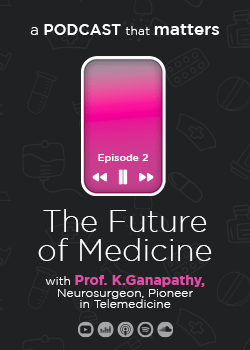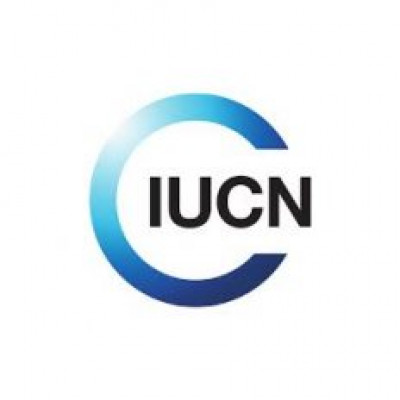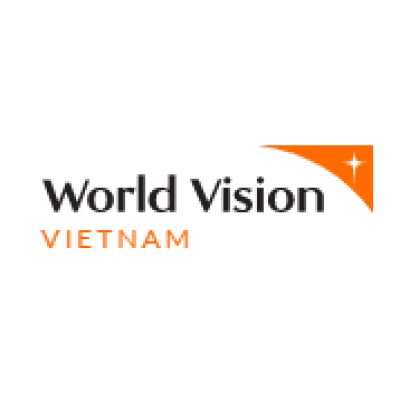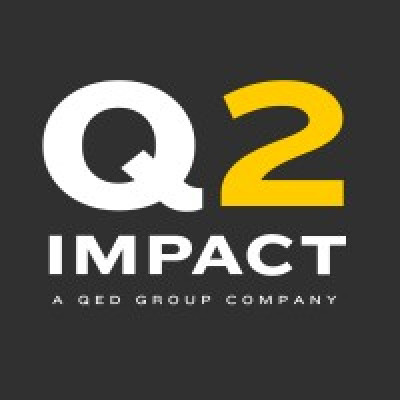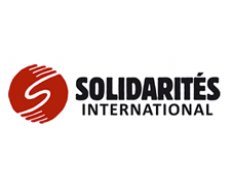Details
Description
Background
UN Women, grounded in the vision of equality enshrined in the Charter of the United Nations, works for the elimination of discrimination against women and girls; the empowerment of women; and the achievement of equality between women and men as partners and beneficiaries of development, human rights, humanitarian action and peace and security.
In Viet Nam, UN Women contributes to the development objectives of Viet Nam’s Socio-Economic Development Plan and the National Strategy for Gender Equality. Its Country Strategy Note for 2022-2026 is aligned to the upcoming UN Sustainable Development Cooperation Framework (UNSDCF) 2022-2026 and is focused on supporting Viet Nam’s fulfilment of Gender Equality commitments under The Convention on the Elimination of All Forms of Discrimination against Women (CEDAW), and the promise of the 2030 Sustainable Development Agenda to “leave no one behind”. The key priorities of UN Women in the 2022-2026 period are:
- By 2026, people in Viet Nam, especially those at risk of being left behind, will benefit from and contribute to safer and cleaner environment resulting from Viet Nam’s effective and gender responsive mitigation and adaptation to climate change, disaster risk reduction and resilience building, promotion of circular economy, the provision of clean and renewable energy, and the sustainable management of natural resources.
- By 2026, people in Viet Nam, especially those at risk of being left behind, will contribute to and benefit equitably from more sustainable, inclusive and gender-responsive economic transformation based on innovation, entrepreneurship, enhanced productivity, competitiveness, and decent work.
- By 2026, people in Viet Nam, especially those at risk of being left behind, will have benefited from and have contributed to a more just, safe and inclusive society based on improved governance, more responsive institutions, strengthened rule of law and the protection of and respect for human rights, gender equality, and freedom from all forms of violence and discrimination in line with international standards.
In Viet Nam, the Country Office (VCO) actively leads or participates in several UN system coordination working groups to advance gender equality. These include the Gender Thematic Group (GTG) and the Informal Ambassadors and Heads of Agencies Group on Gender Policy Coordination. As Chair of the GTG, UN Women will support the UN Resident Coordinator (RC) in overseeing the implementation of the United Nations Country team (UNCT) Gender Equality Action Plan developed to implement the recommendations of UN SWAP gender scorecard and promoting the effective application of the UNCT Gender Equality Marker to the One Strategic Framework for Sustainable Development Cooperation (UNSDCF) between the United Nations and the Government of Viet Nam for the period 2022 -2026.
UN Women leads the joint efforts with UN agencies and other gender advocates from government, development partners, and CSOs and community-based organizations to advocate for improved compliance with international standards on human rights and gender equality through the provision of evidenced-based technical support to law drafting and policy making bodies.
Reporting to the Country Representative, the Coordination Officer will provide support to the Country Representative in inter-agency coordination, gender equality global normative implementation and reporting, knowledge management, as well as strategic partnerships and resource mobilization.
Duties and Responsibilities
1. Manage inter-agency coordination on Gender Equality and Leaving No-one Behind and other coordination platforms that UN Women leads:
- Provide technical support to joint inter-agency UN planning processes and similar exercises on gender equality and women empowerment; including the utilization of the Gender mainstreaming guidelines and screening tool for UN Joint programmes
- Prepare background and briefing materials and analysis for the Country Representative on issues to be discussed in the UN and other events, including on the gender dynamics and opportunities to support inclusive engagement of women in the development assistance provided by the UNCT;
- Oversee the planning, implementation, monitoring and reporting of the UNCT-SWAP Gender Scorecard;
- Ensure efficient management of the PSEA coordination mechanisms, in close collaboration with the RCO and other UN agencies.
- Provide Secretariat support to the Informal Group of Ambassadors and Heads of Agencies on Gender Equality – preparation of briefing materials, agenda, minutes, management of invitations and meeting guests.
- Provide technical support for other coordination platforms that UN Women leads in liaison with other Programme Analysts.
- Take part in and coordinate agency gender focal point engagement in country level CCA/ UNSDCF processes and similar exercises related to the RC system and prepare substantive inputs towards the establishment of a gender transformative CCA/ UNSDCF and other documents as necessary.
- Provide substantive inputs to country programming processes and products, including inter-agency annual workplans, programme/ project documents and other UN system joint programming.
2. Provide technical support to UN Women VCO in coordination and reporting of key UN frameworks and conventions and inter-governmental processes on gender equality.
- Provide technical support to Programme Management Specialist in coordinating with government and national stakeholders on the implementation and reporting of key UN frameworks and conventions on gender equality in Viet Nam and Vietnam’s engagement in inter-governmental processes.
- Support the engagement of GEWE CSO’s, women’s rights advocates, and other stakeholders in implementation and reporting of key UN frameworks and conventions and intergovernmental processes on gender equality in Viet Nam.
3. Provide technical support to the development of strategic partnerships and resource mobilization efforts:
- Provide support in managing activities and other promotional events to engage bilateral and multilateral institutions/ donors, private sector and civil society to expand and/or sustain interest and resources for UN Women programmes and joint UN system programmes;
- Prepare background documents and analysis for the Country Representative to forge and implement strategic partnerships to increase outreach on UN Women’s work in country;
- Provide network and capacity development to partner Civil Society Organizations and other stakeholders, as necessary.
4. Facilitate knowledge building and sharing on gender equality:
- Monitor GEWE trends globally and in Viet Nam and update UN Women Country Representative and programme team as appropriate.
- Facilitate engagement of the UN system in Viet Nam on strategic GEWE issues, including CEDAW, Sustainable Development Goals, and the Country Gender Equality Profile
- Participate in and contribute to policy dialogues and initiatives around GEWE.
- Provide support to the development and dissemination of good practices and lessons learned; ensure incorporation into programme and policy planning;
- Contribute to capacity building exercises, as necessary.
Competencies
Core Values:
- Respect for Diversity
- Integrity
- Professionalism
Core Competencies:
- Awareness and Sensitivity Regarding Gender Issues
- Accountability
- Creative Problem Solving
- Effective Communication
- Inclusive Collaboration
- Stakeholder Engagement
- Leading by Example
Functional Competencies:
- Good knowledge of gender equity and women’s empowerment issues
- Good knowledge of UN system and understanding of inter-agency coordination processes
- Ability to promote and monitor inclusion of gender-specific objectives, indicators, targets and activities in the UN agencies programmes
- Good analytical, writing and presentation skills
- Ability to provide advice and support
Required Skills and Experience
Education and certification: |
|
Experience: |
|
Language Requirements: |
|
Application:
All applications must include (as an attachment) the completed UN Women Personal History form (P-11) which can be downloaded from: https://www.unwomen.org/sites/default/files/Headquarters/Attachments/Sections/About%20Us/Employment/UN-Women-P11-Personal-History-Form.doc. Kindly note that the system will only allow one attachment. Applications without the completed UN Women P-11 form will be treated as incomplete and will not be considered for further assessment.
Note:
In July 2010, the United Nations General Assembly created UN Women, the United Nations Entity for Gender Equality and the Empowerment of Women. The creation of UN Women came about as part of the UN reform agenda, bringing together resources and mandates for greater impact. It merges and builds on the important work of four previously distinct parts of the UN system (DAW, OSAGI, INSTRAW and UNIFEM), which focused exclusively on gender equality and women's empowerment.
Diversity and inclusion:
At UN Women, we are committed to creating a diverse and inclusive environment of mutual respect. UN Women recruits, employs, trains, compensates, and promotes regardless of race, religion, color, sex, gender identity, sexual orientation, age, ability, national origin, or any other basis covered by appropriate law. All employment is decided on the basis of qualifications, competence, integrity and organizational need.
If you need any reasonable accommodation to support your participation in the recruitment and selection process, please include this information in your application.
UN Women has a zero-tolerance policy on conduct that is incompatible with the aims and objectives of the United Nations and UN Women, including sexual exploitation and abuse, sexual harassment, abuse of authority and discrimination. All selected candidates will be expected to adhere to UN Women’s policies and procedures and the standards of conduct expected of UN Women personnel and will therefore undergo rigorous reference and background checks. (Background checks will include the verification of academic credential(s) and employment history. Selected candidates may be required to provide additional information to conduct a background check.

